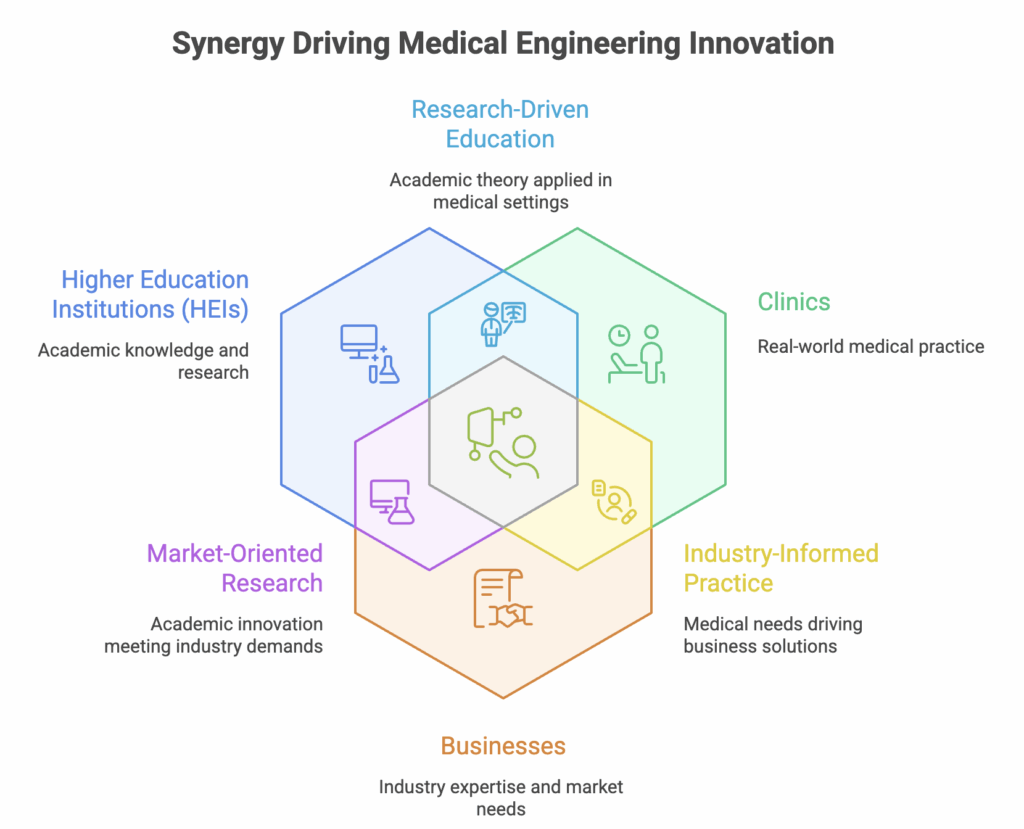There is a need for enhanced collaboration and cooperation between Higher Education Institutions (HEIs), clinics, and businesses within participating countries and the broader European community. Currently, such collaboration is insufficient and lacks formalization, resulting in an education system that is not aligned with market requirements and limited utilization of modern research and engineering techniques in medical engineering. To address these issues, the Knowledge Triangle Network was proposed.
The Knowledge Triangle Network aims to achieve the following objectives:
- Integrate Natural and Engineering Sciences (NEM) into existing educational processes in medical engineering, basing courses on the application of Science, Technology, Engineering, and Mathematics (STEM) philosophy and related technologies.
- Establish strong coordination and collaboration among scientists, engineers, students, and medical practitioners from HEIs, clinics, and companies to facilitate knowledge acquisition and the development of new engineering methods and medical techniques.
- Promote the inclusion of more women researchers in novel learning approaches, particularly in NEM and STEM fields.

The Knowledge Triangle Network is designed to integrate innovation, education, and business solutions through continuous cooperation, knowledge exchange, and the transfer of achievements among HEIs, businesses, and medical institutions. It will consist of virtual centers (E-Centers) primarily comprising HEIs, industry partners, and medical institutions, with the potential to include other interested partners like research centers, laboratories, and various public and private institutions.
The network’s partners will be interconnected through the E-COOL platform, a separate output of WP4. This network will also enable the following:
- Foster an entrepreneurial and innovative higher education sector, serving as the foundation for a sustainable E-COOL platform and strengthening strategic cooperation among higher education institutions in Europe.
- Encourage innovative learning and teaching practices through NEM and the E-COOL platform, offering new student-centered curricula and standardized modular course designs. These features allow industry practitioners to take online courses, supporting lifelong learning and skill development based on the latest research findings from HEIs and industry. In conclusion, the overarching motivation is to establish a novel educational platform and a physical and e-network that facilitates further education and specialization in the field of medical engineering. This platform will serve as the basis for the future integration of new medical techniques into society, aligning education with industry needs and technological advancements.
